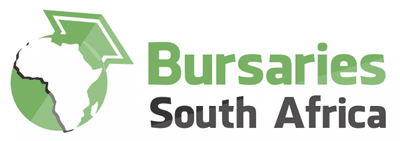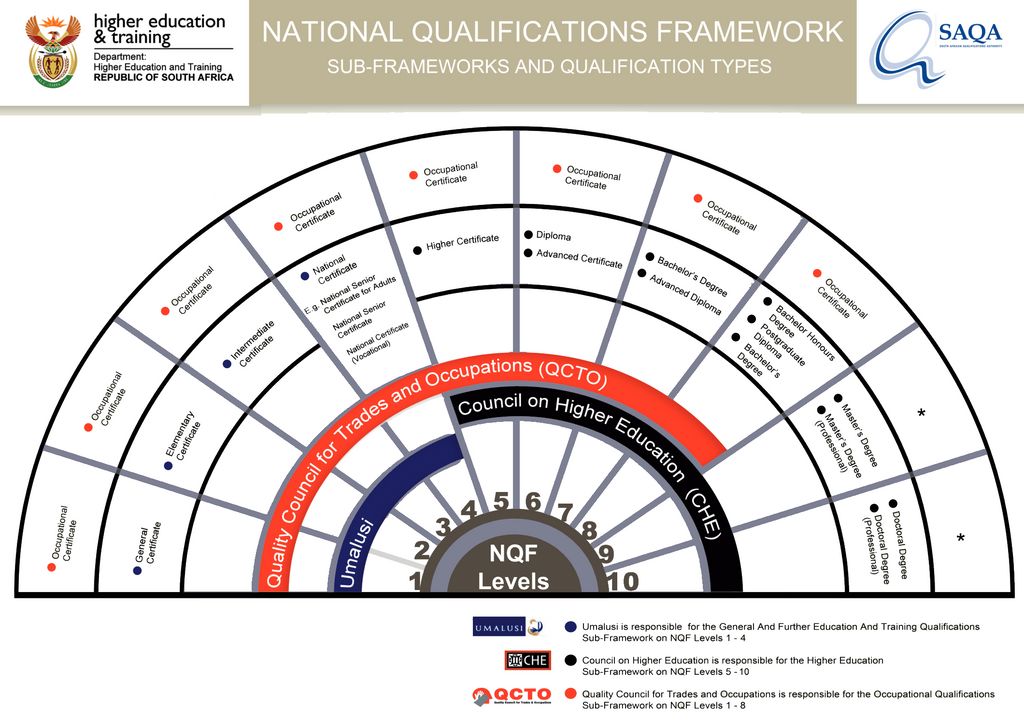National Qualification Framework (NQF) Levels Explained
What is the NQF?
National Qualification Framework (NQF) is a national structure used by South Africa to arrange the levels of learning achievements a person obtains under the South African Qualifications Authority (SAQA). The NQF records the credits assigned to each level of learning completed, to ensure that the skills and knowledge that have been learnt are recognised throughout the country.
There are 10 NQF levels in total. Each person in South Africa who obtains an NQF qualification is required to identify which level they have achieved, as this will show the skill level they have and what they can do with their qualification.
The National Qualification Framework is exactly that: a FRAMEWORK. It not only is the guideline for all education and training within the country but also sets the principles, guidelines and boundaries for the construction of a qualifications system. These principles, guidelines, and boundaries provide a vision for an organisational structure and a philosophical base.
SAQA is a professional statutory body and is regulated in accordance with the National Qualifications Framework Act No. 67 of 2008. SAQA consists of 29 members, all appointed in consultation with the Minister of Labour and Minister of Education. SAQA’s main mandate is to ensure that the implementation and development of the NQF are supervised and managed.
How do NQF levels work?
As mentioned, the NQF consists of 10 levels. These 10 levels are then divided into 3 bands:
- First band: Levels 1 to 4 which is equivalent to High School Grade 9 to 12 or Vocational training
- Second band: Levels 5 to 7 which include college diplomas and technical qualifications
- Third band: Levels 7 to 10 which include university degrees
Every level a person obtains allows them to advance to a higher level. For example, if someone were to be interested in obtaining a Bachelor’s Degree in Science, they would need an NQF-4 (Matric) and would also then need to obtain high results in subjects such as Mathematics, Physical Science, and Life Science as they relate to the qualification they wish to achieve. Only with good results in these specific subjects would they be considered for the qualification.
NQF also plays an integral role in the job market. Although some jobs may vary in the level of qualification and skills they would need from a respectable candidate, many jobs do require specific qualifications.
NQF Levels Designation
- NQF 1: Grade 9
- NQF 2: Grade 10 and National Vocational Certificate Level 2
- NQF 3: Grade 11 and National Vocational Certificate Level 3
- NQF 4: Grade 12/ Matric (National Senior Certificate) and National Vocational Certificate Level 4
- NQF 5: Higher Certificates and Advanced National Vocational Certificate
- NQF 6: National Diploma and Advanced Certificate
- NQF 7: Bachelor’s Degree, Advanced Diplomas, Post Graduate Certificates and Bachelor’s of Technology
- NQF 8: Honour’s Degree, Post Graduate Diploma and Professional Qualifications
- NQF 9: Master’s Degree
- NQF 10: Doctor’s Degree
What is the NATED System?
The NATED level systems are not equivalent to NQF levels (ie. N4 is not the same as an NQF level 4). You can start studying towards an N1 (NATED) courses with a grade 9 (NQF1) and then work your way up the NATED System to an N3 certificate (NATED), which is equal to an an NQF 4/ NSC Matric.
A NATED N4-6 is equal to a NQF 5 and a NATED N6 with 18 months of work experience is equivalent to an NQF 6 – this is called a NATED National Diploma. The NATED systems allows for students to pursue qualifications just below degree level, with only a Grade 9 certificate.
See which bursaries are open for application here
Read our other tips and articles here:
Read our top tips on submitting your bursary application for the best chance of success.
Read our tips on how to write a bursary motivational letter here.
Read about how to prepare for a bursary interview here here.
Read about the various ways to get free education in South Africa.
Are you following us on social media? We post our latest bursary opportunities and reminders of bursaries closing soon on Facebook, Twitter and Instagram.




